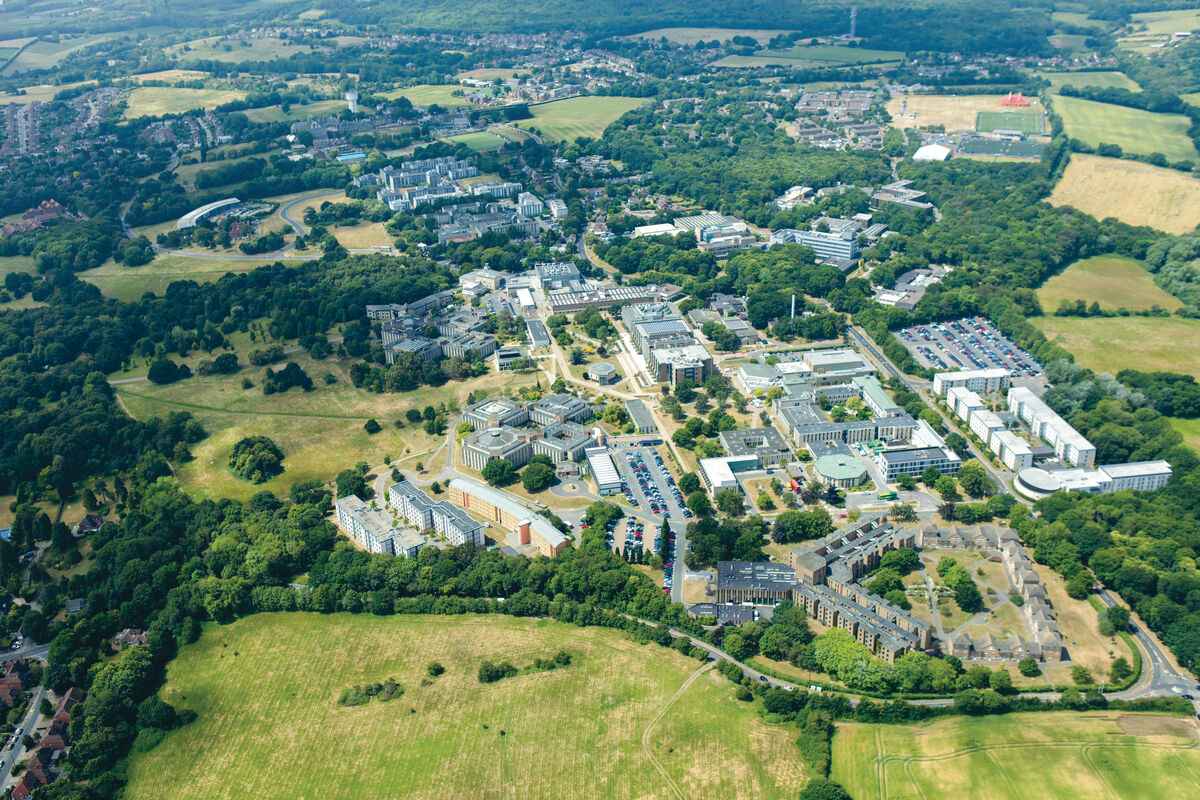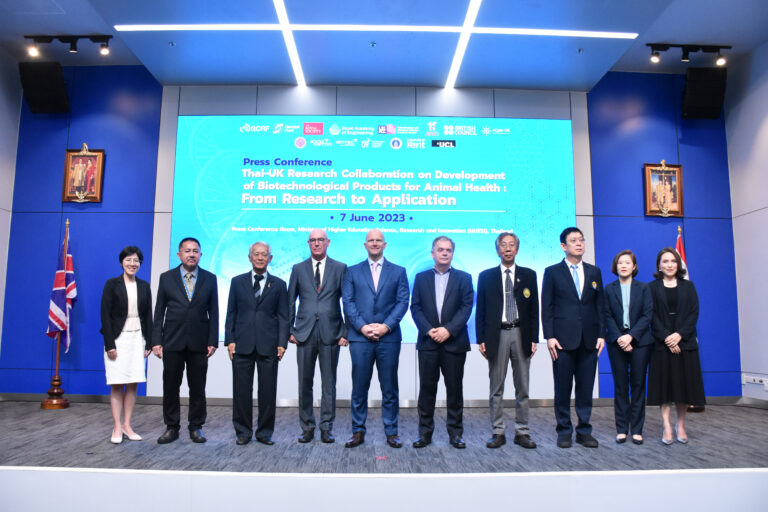Scientists from the University of Kent have jointly organised Biotec conference in Thailand to showcase the outputs from 2 UK-Thailand research programmes. One of the projects, “Establishment of Biopharmaceutical and Animal Vaccine Production Capacity in Thailand and Neighbouring South East Asian Countries” was funded by a £4.9 million grant from the UK Research and Innovation’s Global Challenges Research Fund (GCRF) for the period of 2018-2022, and led by Professor Colin Robinson and Professor Mark Smales from the School of Biosciences.
This work aimed to enhance Thailand’s capacity to design and manufacture its own animal vaccines and high-tech medicines. The other project, “Development of novel microalgal-based systems for shrimp disease control in South East Asia” (funded by UK’s Royal Society) aimed to develop novel anti-viral molecules to combat pathogens that devastate the critically important shrimp farming industry in Thailand. The Thai partners in the projects were the National Center for Genetic Engineering and Biotechnology (BIOTEC; key scientists Dr Peera Jaruampornpan and Dr Vanvimon Saksmerprome) and King Mongkut’s University of Technology Thonburi (KMUTT; key scientist Dr Lalintip Hocharoen). Both projects were highly successful and this showcase event set out to capture interest in the commercialisation of the new treatments. The event involved a press conference on June 7, attended by over 100 stakeholders, followed by a scientific symposium on June 8 attended by 150 people.
Other talks at the event included Professor Alessia Buscaino, who gave a talk at the symposium on the Growing Kent and Medway project and alternative proteins.
Colin said: “Overall, the event showcased the successful collaboration between the University of Kent, BIOTEC and KMUTT revealing new areas of collaboration for the future. It was an inspiring event, highlighting the potential for groundbreaking research and innovation.”

